Is Lane Splitting in Florida Illegal?
If you live in Florida and are a driver, most likely you have witnessed lane splitting. Lane splitting occurs when a motorcycle driver drives between two lanes of stopped or slower moving cars, potentially creating a more dangerous roadway for all. Depending on the state, lane splitting may or may not be legal. When a motorcycle swerves in and between lanes, this behavior is illegal in Florida. Due to the dangerous and unpredictable nature of lane splitting, it is more likely that an accident will occur, compared to a safe motorcycle driver safely following the rules of the road. If an accident occurs due to a motorcycle operator who is lane splitting, the motorcyclist will most likely be held liable for the accident. An accident victim will be compensated for the amount that his or her negligence was not a contributing factor of the accident. Furthermore, if the motorcyclist is deemed liable for the accident, they will not be able to recover, generally. A precaution of this rule is if the motorcyclist can prove that the other driver’s actions contributed to the accident in the court of law. A few primary examples of this caveat is if the motorcyclist can prove that the car driver was driving carelessly, swerving in and out of lanes, or texting while driving, and thus the accident occurred as a result of the driver’s behavior.
For drivers, there are multiple factors that should be taken into consideration. Was the motorcyclist riding with cars? Has the motorcyclist been riding for years, making them an experienced motorcyclist? Did the motorcyclist have specialized training, which would make them more knowledgeable about how to operate a motorcycle safely? Did the motorcyclist act dangerously, in addition to lane splitting?
In order for the motorcyclist to prove that additional factors and other’s behaviors contributed to the accident, it is essential that the motorcyclist has evidence to prove their side of the story. If both parties are able, the motorcyclist must collect contact information, names, and car details (make, model, year, color) at the time of the accident. The driver should also use their cellphone to take pictures, including injuries to all parties, damage to the vehicle and the bike, and the accident scene. If possible, the driver should also take pictures of any contributing factors of the accident, including road hazards, traffic, or inclement weather conditions.
In addition to lane splitting being illegal in Florida, another major question is how safe is lane splitting. If you decide to lane split as a motorcyclist, one major step you can take to stay safe is to be exceptionally alert when entering a car’s blind spot. Additionally, ensure your headlights are turned on and wear reflective clothing, to increase the chances of other drivers seeing you. Look for signs that other cars are attempting to switch lanes, including turn signals, or if they are favoring one side of the road. If a car appears to be coming to close to you, you may honk to alert the other driver of your presence. Be aware that it is never recommended to split lanes in areas where traffic exceeds 30 mph. This precaution is in place for various reasons, especially because there is little reason time to make a correction in these cases. Although wearing a helmet may or may not be a legal requirement, depending on the state, helmets are proven to reduce injuries in minor accidents.
If you become involved in an auto accident, especially one that is a direct result of dangerous lane splitting, immediately seek medical attention. The next step is to seek medical attention, to ensure you are physically okay, and to help you in the future if you wish to file a claim. Be sure to call police in order to have a police report completed. The next step is to hire a personal injury attorney.
If you or someone you know has been injured in a car crash or truck accident and are in need of an accident attorney in Miami, Fort Lauderdale, West Palm Beach, Naples, Ocala, Orlando, Tampa, Gainesville, Jacksonville, Tallahassee, Ft. Myers or any other city in Florida –remember after 911, call 411! 1-800-411-PAIN can put you in touch with an experienced, aggressive network attorney who will fight for your rights and get the maximum compensation you deserve. Don’t forget to follow 411 PAIN on Twitter (@411PAIN), keep up with the conversation at #411PAIN and check out the 411 PAIN event gallery 411painevents.com!



